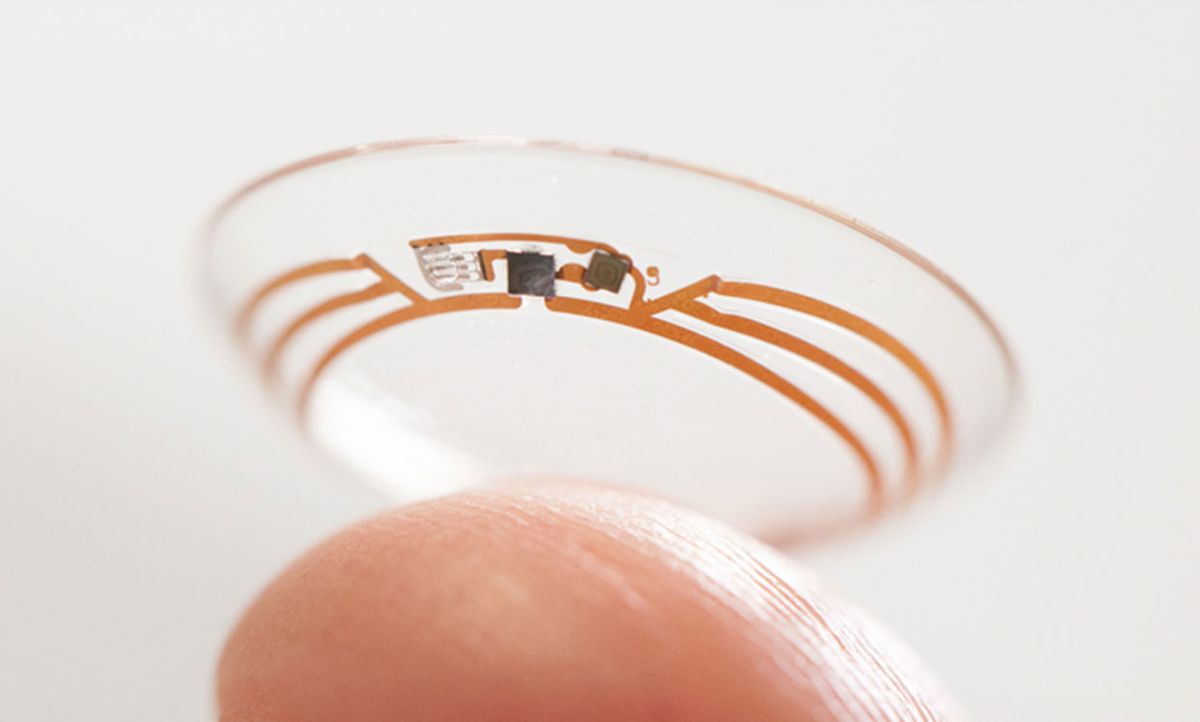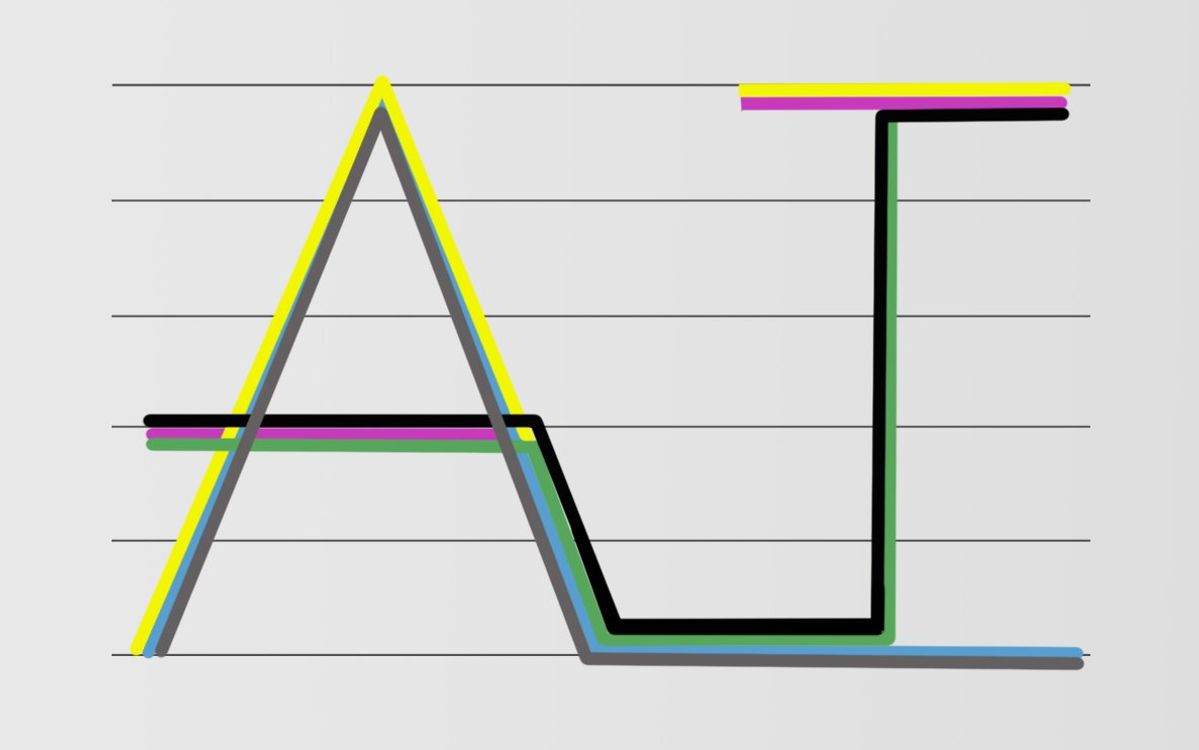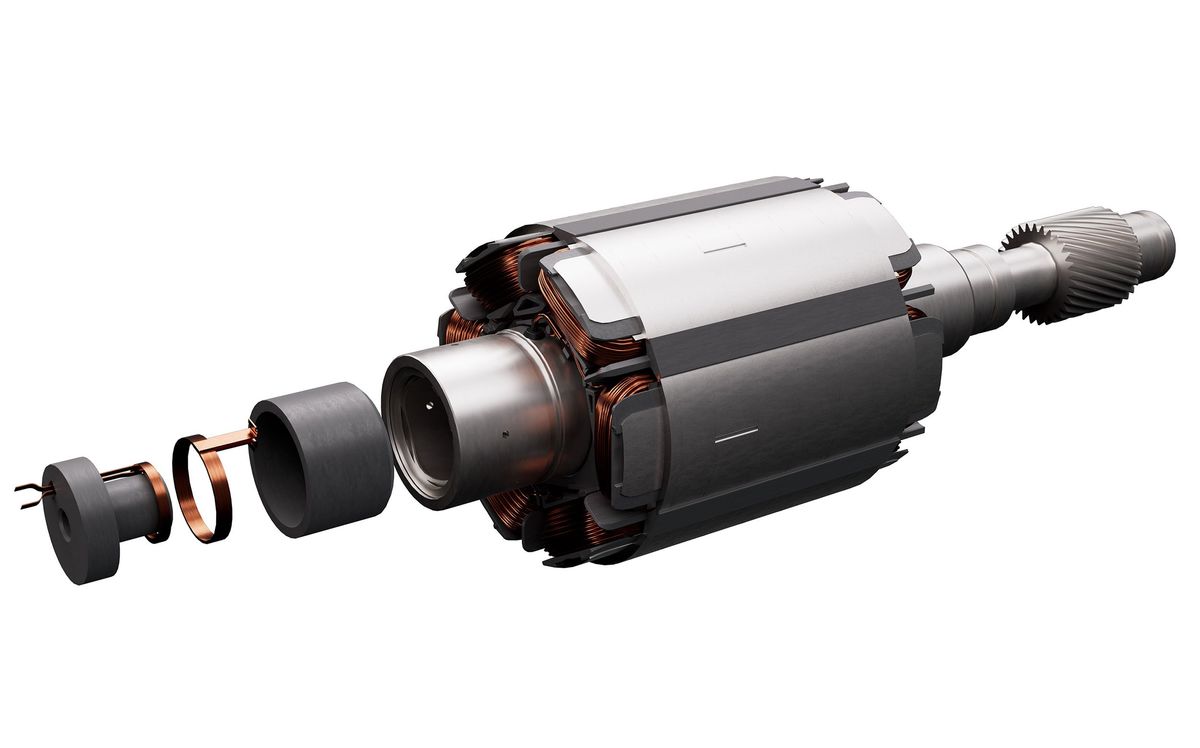They had the resources of two large companies and top experts in both biology and electrical engineering. Still, researchers at Alphabet and Novartis couldn’t build an accurate glucose sensor in a contact lens.
Chief technical officer Brian Otis, at Alphabet’s life science arm Verily, announced earlier this month in a blog post that the companies would put their in-eye glucose-sensing project “on hold.” They couldn’t get consistently accurate results from the device in clinical testing, Otis said in the post.
The announcement surely disappoints the scores of people with Type 1 diabetes who long for an easy, noninvasive device to track their blood sugar, or glucose. For now at least, these people are stuck with pricking their fingers multiple times a day to get glucose measurements from their blood.
But Alphabet’s announcement likely comes as no surprise to the many scientists who for decades have tried, and failed, to build such sensors. These researchers have attempted to track glucose not only in tears but also in other external bodily fluids such as sweat, saliva, and urine. And one after another, the projects have failed.
Some of these scientists have come to the conclusion that such a sensor just isn’t possible. “Truly noninvasive chemical biosensing is a holy grail, but really, really difficult,” says Jason Heikenfeld, director of the Novel Device Lab at the University of Cincinnati and cofounder of sweat sensor startup Eccrine Systems. “For example, in our own work with sweat it took us seven years of academic research” just to demonstrate that accurate continuous measurements of another, easier analyte—alcohol—are possible to measure in sweat, he says.
Eccrine Systems won’t pursue glucose as a target in sweat anytime soon, Heikenfeld says, because of the difficulties in getting consistently accurate measurements.
And even more challenging is tracking glucose in tears, he says, because of the eye’s small, complex environment. Tears evaporate, they flow in lots of different directions across the eye, they can get stagnant behind a contact lens, their volume increases when we cry or chop onions, and it’s not feasible to stimulate tear production for glucose measurements, as one can with sweat. An in-eye sensor must overcome these obstacles, while being small and flexible enough to rest on the eyeball without impeding eyesight.
Despite those challenges, when the founders of Alphabet’s smart contact lens, which originated at Google X, announced their project in 2014, they hoped to “crack the mystery of tear glucose.” They partnered with Alcon, the eye care division of Novartis, to get the job done.
Now, four years later, like many before them, it appears that the companies are throwing in the towel, at least for now. Specifically, they found that “interference from biomolecules in tears resulted in challenges in obtaining accurate glucose readings from the small quantities of glucose in the tear film.” In addition, their “clinical studies have demonstrated challenges in achieving the steady-state conditions necessary for reliable tear glucose readings,” Otis wrote in his post. In other words, they couldn’t get consistent, accurate glucose readings.
In addition to glucose, the companies have been working on a smart accommodating contact lens for presbyopia (the loss of near-focusing ability) and a smart intraocular lens for improving sight following cataract surgery. Otis said the companies would continue work on these two other smart lens programs.
Alphabet’s announcement was posted the day after IEEE Spectrumran a story in which an expert had speculated that the company’s glucose project had not been successful. That story highlighted another in-eye glucose sensor, developed by Noviosense, that showed early, but positive, clinical results.
Emily Waltz is a features editor at Spectrum covering power and energy. Prior to joining the staff in January 2024, Emily spent 18 years as a freelance journalist covering biotechnology, primarily for the Nature research journals and Spectrum. Her work has also appeared in Scientific American, Discover, Outside, and the New York Times. Emily has a master's degree from Columbia University Graduate School of Journalism and an undergraduate degree from Vanderbilt University. With every word she writes, Emily strives to say something true and useful. She posts on Twitter/X @EmWaltz and her portfolio can be found on her website.



